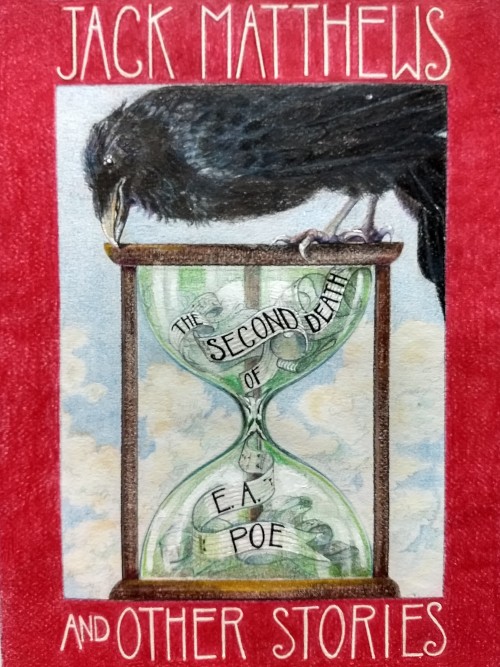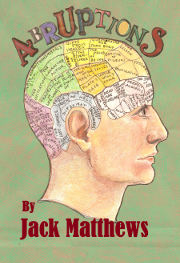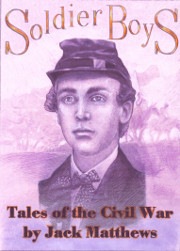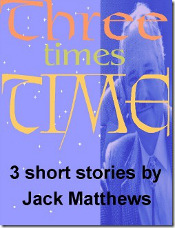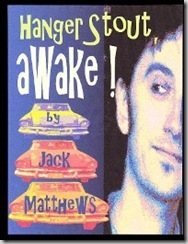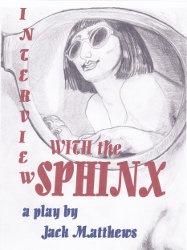
Description of Book
Since the early 1990s, Jack Matthews has distributed a photocopied version of this 75,000 word writing guide to students in his fiction writing classes at Ohio University. This guide offers insight about how successful writers mold raw experiences into a story and how language helps you to do that. It offers lots of good examples and practical advice for getting a story idea off the ground; it analyzes several stories (including one of Matthews’ own) and offers several paradigms for understanding how stories work. Erudite, witty, idiosyncratic, serendipitous, mischievous, sesquipedalian, entertaining, introspective and colorful: these are adjectives which come to mind when reading this book.
About the Author
86 year old author Jack Matthews has not only written more than 15 works of fiction, he was distinguished professor of Fiction Writing at Ohio University in Athens, Ohio for over 4 decades. Winner of Guggenheim and several arts grants, Matthews has been anthologized widely, translated into several languages and nominated for a National Book Award. His own books have been praised by Eudora Welty, Anthony Burgess, Shirley Ann Grau, Tim O’Brien, Doris Grumbach, Walker Percy and a host of other famous and highly accomplished authors. NBA-Award poet William Stafford listed Matthews’s novel, HANGER STOUT, AWAKE! as his only title in an ANTAEUS series on “Neglected Books Of The 20th Century.” In July 2011, Estruscan Press published his novel, The Gambler’s Nephew, a dark 19th century tale about slavery, guilt, memory. In Fall 2011 Personville Press will be republishing his 1967 novel Hanger Stout, Awake.
- Retail Price: $2.25
- Publication Date: April 12 2011
- Genre: Writing Guide
- Places to Buy: Google Play |BN | Apple | Kobo | Amazon US | Amazon UK |
- Social Media: Librarything | Goodreads
- Where to Buy the “No DRM” Version: Payhip | Smashwords
- Available NOW for less on Payhip!
- Word Count: 75,000 (approximately 230 pages)
Related Links
- 2009 Interview (also reprinted at the end of this ebook).
- See also: a brief excerpt from the book about the art of naming characters.
- Audio: 1984 Interview with Don Swaim (mp3), “A Woman of Properties,” (mp3) a short story read by Miette Elm.
- Bibliography and an essay, Nathaniel Hawthorne’s Untold Talepublished recently in The Chronicle Review.
- Jack Matthews Fan page on Facebook. With updates every month or so.
- 2019 afterward by Robert Nagle about this writing guide.
Book Preface (Written by Robert Nagle):
Jack Matthews has not only published more than 15 books of fiction, he taught classes in fiction writing to students at Ohio University for over four decades. This book consists of his teachings, insights, ramblings and ruminations about the art of fiction.
Many books have been written about the craft of fiction writing; how is this one different?
First, a Worker’s Writebook: How Language Makes Stories consists of essays and dialogue (called interludes). These interludes punch holes in the rules and pronouncements made in the essays; they also help the book avoid seeming too dogmatic. The two voices in the interludes are not exactly “characters” but the author and a contrarian voice within the author. The comparison to Platonic dialogues is apt; Matthews received his undergraduate degree in classical Greek literature and has always found echoes of the classical age in contemporary art and life. Still, the “poetics” of Writebook is grounded less in Aristotle than Aristophanes.
Writebook touches upon some practical aspects of writing fiction (such as naming characters and writing speech cues). But Writebook focuses on helping the writer write more boldly and with more attention to the linguistic vehicles of thought. For Matthews, most stories fail through under-invention, not because the rules of narrative have been disregarded.
Chapter 2 (Taxonomies) and 3 (Structural Matters) cover various paradigms for plot and character development. These are worthy subjects and Matthews has interesting things to say (especially when he tries to analyze his story Funeral Plots with these same paradigms). At the same time Matthews recognizes that there is no magic paradigm or archetype capable of explaining what makes all stories successful – these are just guides. At some point you just have to trust writerly intuition. Writebook helps the potential storyteller to cultivate this intuition and be flexible enough to bend rules when necessary. Matthews writes, “Anything can be done if it’s done in the right way: with style, panache and cunning.”
Many writing books include a chapter or two listing literary cliches to avoid. For the most part, Writebook doesn’t do that. Instead it goes deeper and analyzes why some metaphors succeed and others do not. The funny Parable of the Indifferent Ear provides a good case study about how linguistic inventiveness doesn’t always translate into effective writing.
Literary insights from Writebook can be applied to drama, novels and poetry; but they are especially applicable to smaller forms like the short story (though Matthews’ claim that a short story of more than 10,000 words rarely succeeds is sure to be controversial). Writebook’s musings on the novel are still interesting (Matthews has written several novels, including Sassafras, a philosophical-satirical work that is every bit as expansive as Dickens or Balzac). But if you are seeking a guide specifically about novel writing, you might check out Jane Smiley’s 13 Ways of Looking at a Novel, Milan Kundera’s Art of the Novel or even (!) Stephen King’s On Writing.
Similarly, although Writebook includes a few writing exercises – Matthews calls them gimmicks – there are probably better books for that (with Josip Novakovich’s Writing Fiction Step by Step being a notable example).
Writebook introduces lots of new ideas and terminology: the non-sequential time opening, the Swamps of Antecedence, pointedness (which, as I understand it, is how stories gain enough momentum to escape the gravitational pull of the author), linguistic vehicles (the actual words which transport the thought) and why flat characters aren’t always bad. Also, the technique of overcoming writer’s block by trying deliberately to write something bad or meaningless actually works (I’ve tried it).
Matthews wrote Writebook in the mid 1990s (and distributed it to his creative writing students throughout the years). Since then, Matthews has retired and kept busy with various writing projects (described in greater detail in his 2009 interview in Chapter 7). At 85 years old, Jack Matthews is still writing fiction and teaching occasional writing classes. For more information about the life and writings of Jack Matthews, see www.ghostlypopulations.com
I almost forgot; Writebook is wickedly funny. I won’t spoil the jokes; suffice to say that one of his former students said Matthews was “so damn witty” in the classroom that he reminded her of Groucho Marx. Writebook has serious and even lofty aims. But this is fun reading. Matthew’s style is playful and pedantic; Matthews enjoys inventing characters on the fly to illustrate his points and adding qualities to them until you begin to wonder if Writebook is going to veer into becoming a novel. After I finished this book, I still remember snarling black-eyed Greta Hutchins; she is still snarling, and I am wondering what she’s going to try next.
Random Quotes from A Worker’s Writebook Ebook
Years ago, a national magazine reported a conversation between Frank Sinatra and Spiro Agnew, who had just fallen from power and glory as Vice-President under Richard Nixon and like many of the idle famous, decided to turn his hand to writing. He and Sinatra debated whether his first undertaking should be “a novel or a serious book,” whereupon Sinatra advised him to write a serious book first.
And yet, most students realize that the same effort expended upon almost any other enterprise would be vastly more profitable. There’s something mystical at work here, and we should think about it. The money you make by having a novel or short story published isn’t like other sorts of money. The cashier at K Mart or your attendant at the local Gulf station may not acknowledge the difference, but you know how that money was earned. It was earned by selling the trophy you brought back from a long and exhausting hunt somewhere in the wilds of your imagination – a place where you ventured, equipped with all the suitable accouterments of craft and guided by your own polestar of inspiration.
***
Ideas belong to writers in secret ways. The instant you draw a circle around a public idea and recreate it in your own language, that idea becomes personal and private. And, as the writer, you alone – and no one else – are responsible for its fulfillment. The story idea becomes intimately your personal possession the instant you begin to work with it. But your function is even greater than this, for you are also the first reader of what you write.
What I do at such times is yell at the little monsters to shut up. I’m not their father, dammit; and I’m certainly not their mother. What am I supposed to do? How much can I claim responsibility for? After all, I have twenty novels in various stages of completion, all abandoned in fits of impatience, or in spasms of deadly insouciance when l simply didn’t care enough about my characters to listen to their yammering any longer. And what sorts of clamor do you suppose they make, when I’ve abandoned them … and when the moon is full and the tree shadows spill like black ink onto the gray sward, etc.?
The problem is, I know better. I know how to save every blessed one of them, stories and novels both. It would all be very easy – a piece of cake, as they say. But do I revive them by means of mouth-to-ear resuscitation? Do I pound their chests until their little febrile hearts start bumping away? Do I bring them around? Absolutely not … at least not yet. Why? Because I’m not in the mood. I’m too shiftless, irresponsible, and lazy. I’m a good-for nothing who just doesn’t give a damn.
Well, then, how do I know I could save them? It’s easy. I’ve done it. And, unlike real people who are temporarily dead, these characters always come out of their comas without having suffered anything in the way of ischemic brain damage. We all know that real live technically dead persons will begin to suffer brain damage within minutes after the blood stops feeding oxygen to their cerebral cells. But I have brought back characters after a quarter of a century, and they have not only come back alive and kicking, they’ve been far more vital than when I’d tossed them aside in a moment of exasperation all those heartbeats (close to a billion, a little fast arithmetic tells me) ago.

